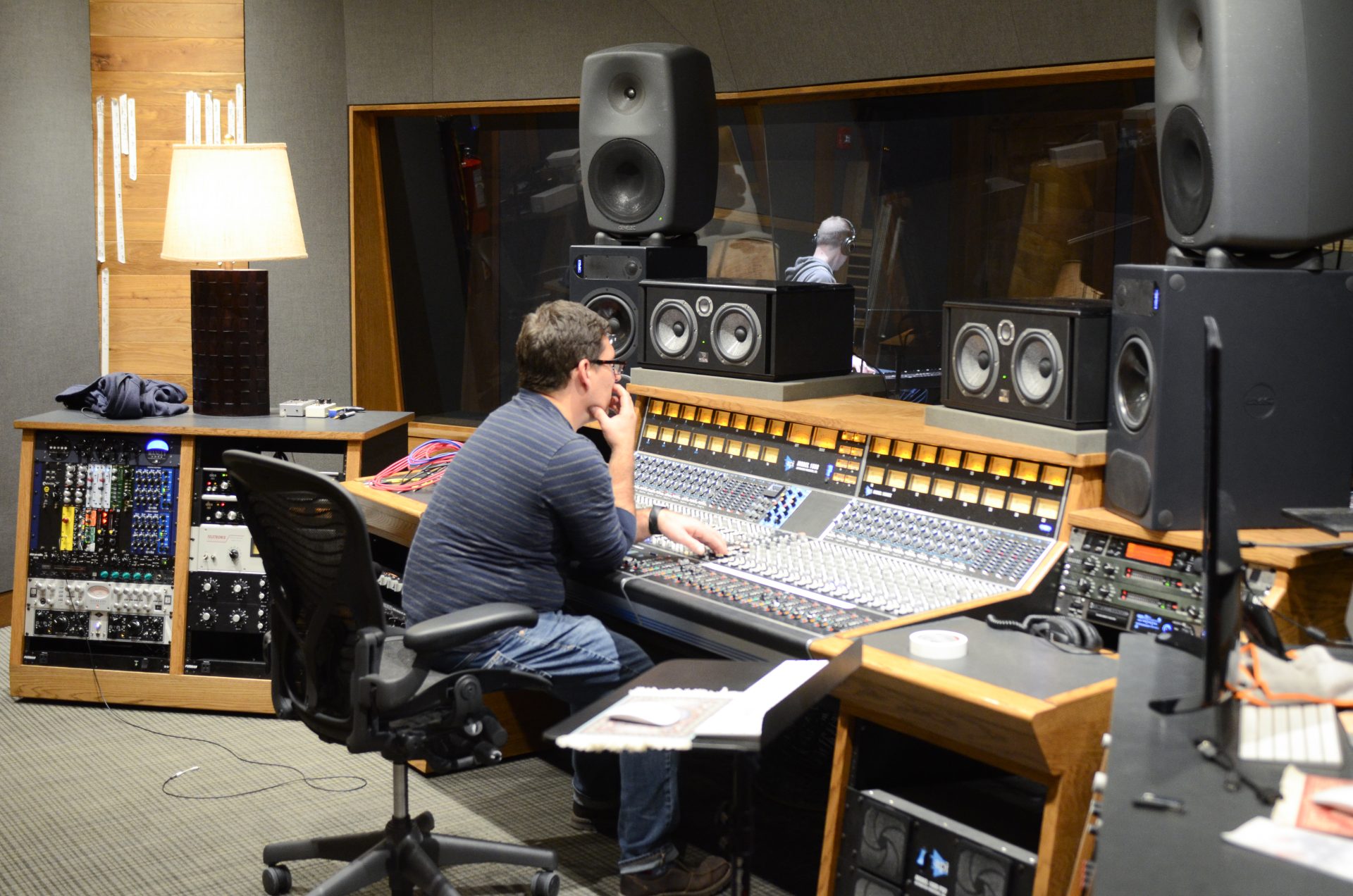
Navigating the Uncharted: 8 Master Strategies for Career Resilience in the New World of Work
The professional landscape is no longer a predictable map; it’s a dynamic, ever-shifting terrain. From the relentless march of technology to unexpected global events, the “new world of work” demands more than just skill. It calls for resilience – the innate human capacity to adapt, bounce back, and even thrive in the face of adversity. Forget the old notions of a linear career path; today, it’s about building an internal compass and a robust toolkit that allows you to navigate storms and emerge stronger. This isn’t about simply surviving; it’s about mastering the art of continuous adaptation and innovation in your professional journey.
Why Resilience is Your Ultimate Career Superpower
In an era defined by volatility, uncertainty, complexity, and ambiguity (VUCA), career resilience isn’t a nice-to-have; it’s a critical differentiator. It’s the secret sauce that separates those who merely weather changes from those who proactively shape their future. As research increasingly highlights, the ability to bounce back from setbacks, embrace continuous learning, and maintain a positive outlook are paramount. It’s about transforming potential threats into opportunities for growth, making you an indispensable asset in any organization.
The following strategies are designed not as a one-size-fits-all prescription, but as a curated collection of principles and practices to forge your own unique path to enduring career strength.
The 8 Pillars of Unshakeable Career Resilience
Strategy 1: Cultivate a “Growth Mindset Navigator” Mentality
The bedrock of resilience is the unwavering belief that your abilities and intelligence can be developed. In the new world of work, this translates to seeing challenges not as insurmountable walls, but as navigational puzzles. Embrace the idea that setbacks are merely detours, offering valuable lessons rather than definitive failures. This proactive perspective, as highlighted by research from institutions like MIT Sloan Management Review, allows you to reframe criticism and obstacles as fuel for improvement, rather than reasons to disengage.
Actionable Insight: Actively seek out feedback, even if it’s uncomfortable. Instead of deflecting, ask clarifying questions to understand the core of the feedback, then brainstorm actionable steps for improvement. Celebrate small wins in your learning journey.
Strategy 2: Become a Master of Adaptive Skill Acquisition
The half-life of skills is shrinking dramatically. The “new world of work” demands constant upskilling and reskilling. Resilience here means not just learning new things, but developing the meta-skill of how to learn effectively and efficiently. Think of yourself as a lifelong student of your industry, constantly scanning the horizon for emerging technologies, methodologies, and market shifts. Northeastern University’s insights on career resilience underscore the critical importance of this ongoing skill development.
Table: Skill Saturation Index (SSI) Snapshot
| Skill Category | Current Saturation | Future Growth Potential | Resilience Focus |
|---|---|---|---|
| AI & Machine Learning | High | Exponential | Continuous Specialization & Ethical Application |
| Green Technologies | Moderate | Rapid | Cross-Disciplinary Integration |
| Data Analytics | High | Sustained | Advanced Interpretation & Storytelling |
| Soft Skills (e.g., Communication, Collaboration) | Evergreen | Increasing | Enhanced Virtual & Cross-Cultural Fluency |
Actionable Insight: Dedicate a portion of your week (even just a few hours) to learning something new related to your field or a tangential area. Explore online courses, workshops, industry publications, and peer learning groups.
Strategy 3: Forge a Powerful Personal Brand Ecosystem
In a fluid job market, your personal brand is your consistent identifier. It’s the unique value proposition you offer to the world of work. Resilience is built by intentionally cultivating a narrative around your expertise, passion, and impact. This extends beyond a resume to encompass your online presence, your contributions to your professional community, and how you articulate your career journey. Forbes’ emphasis on shifting perspective can be applied here – your personal brand is how you intentionally shape that perspective for others.
Actionable Insight: Regularly update your LinkedIn profile, engage in relevant industry discussions, and consider creating content (articles, presentations, or even short videos) that showcase your thought leadership. Be authentic and consistent.
Strategy 4: Build a Diverse “Network of Support” Archipelago
Your professional network is more than just a list of contacts; it’s a vital support system and a source of diverse perspectives. Resilience is amplified when you have a broad and varied network – mentors, peers, industry connectors, and even those in completely different fields. This “archipelago” provides different anchors during turbulent times, offering advice, opportunities, and emotional support.
Actionable Insight: Proactively schedule coffee chats (virtual or in-person) with individuals you admire or who have different expertise. Offer help and insights to others in your network without expecting immediate reciprocity. Attend industry events with the goal of making meaningful connections.
Strategy 5: Master the Art of “Strategic Disconnect” and Re-engagement
The “always-on” culture is a fast track to burnout, which is the antithesis of resilience. Mastering work-life balance is crucial. This involves not just managing your time, but consciously creating periods of rest, rejuvenation, and separation from work. As research from HR Fraternity suggests, this isn’t about shirking responsibility, but about sustainable productivity.
Actionable Insight: Set clear boundaries for your working hours and communicate them. Schedule intentional breaks throughout your day and truly disconnect during them. Utilize vacation time effectively for genuine rest and recovery.
Strategy 6: Develop “Problem-Solving Agility” and “Creative Detour” Skills
The new world of work is rife with unexpected problems. Resilience means not freezing in the face of these challenges, but developing the ability to analyze, adapt, and find innovative solutions. This involves a willingness to experiment, iterate, and pivot when initial approaches don’t yield the desired results. McKinsey’s insights on turning uncertainty into advantage directly relate to this agility.
Actionable Insight: When faced with a complex problem, break it down into smaller, manageable parts. Brainstorm multiple solutions, even unconventional ones, before committing to a path. Be prepared to adjust your strategy based on new information.
Strategy 7: Cultivate “Emotional Intelligence Fortitude”
Navigating the complexities of human interaction in the workplace, especially in remote or hybrid environments, requires strong emotional intelligence. Resilience is bolstered by the ability to understand and manage your own emotions, as well as recognize and influence the emotions of others. This includes differentiating constructive feedback from noise, as noted by HRCsuite, and responding with empathy and professionalism.
Actionable Insight: Practice active listening in conversations. Before reacting to a situation, pause and consider the emotional undercurrents. Seek to understand different perspectives, even if you don’t agree with them.
Strategy 8: Embrace the “Continuous Evolution” Mindset
Ultimately, career resilience is not a static state but an ongoing process of evolution. It’s about accepting that change is inevitable and viewing your career not as a finished product, but as a work in progress. This mindset shift, as discussed by LearnDogrow, allows you to embrace challenges and learn from them, consistently refining your approach and your capabilities.
Actionable Insight: Regularly reflect on your career journey. What went well? What could have been done differently? What are your aspirations for the future? Use these reflections to inform your ongoing learning and development plans.
The Resilient Professional: Future-Proofing Your Career
The “new world of work” is here to stay, and with it comes a persistent need for adaptability and strength. By consciously weaving these eight strategies into the fabric of your professional life, you’re not just preparing for the future; you’re actively shaping it. You are building a career that is not only enduring but also deeply fulfilling, capable of navigating any storm and emerging more capable, more innovative, and more confident than ever before. Embrace the journey, for the most resilient careers are those that are continuously cultivated.

Additional Information
Mastering the New World of Work: 8 Strategies for Career Resilience
The landscape of work is in constant flux. Technological advancements, economic shifts, and evolving societal expectations have created a dynamic environment where adaptability and perseverance are no longer just desirable traits, but essential components of a thriving career. In this “new world of work,” simply performing your job isn’t enough; you need to cultivate career resilience – the ability to bounce back from setbacks, adapt to change, and emerge stronger from challenging circumstances.
This article delves into eight actionable strategies to help you not only survive but truly master the evolving professional landscape, ensuring your career remains robust and future-proof. Drawing on insights from leading publications and thought leaders, we’ll explore what career resilience truly means and how you can actively build it.
Understanding Career Resilience: The Bedrock of Professional Success
As highlighted by Northeastern University, career resilience is crucial for navigating the twists and turns of professional journeys. It’s more than just surviving difficult times; it’s about developing the mental fortitude and practical skills to learn from adversity, pivot when necessary, and ultimately, grow. Bryan Robinson in Forbes emphasizes that shifting your perspective is a key way to cultivate resilience, especially during troubling times. This proactive mindset allows you to view challenges not as insurmountable obstacles, but as opportunities for growth.
McKinsey reinforces this, suggesting that leaders can turn uncertainty into an advantage by intentionally developing resilience, emerging “not just intact, but stronger, more agile, and ready to seize new opportunities.” This highlights the transformative power of resilience – it can propel you forward, rather than simply keeping you afloat.
8 Strategies for Building Unshakeable Career Resilience:
Here are eight detailed strategies to help you master the new world of work and build a resilient career:
1. Embrace Continuous Learning and Upskilling (The “Skill Up” Imperative):
In an era of rapid technological advancement and evolving industry demands, the idea of a static skillset is obsolete. As the Northeastern University article notes, “There’s never been a more important time to skill up.” This means actively seeking out opportunities to learn new technologies, acquire new skills, and deepen your existing expertise.
- Analysis: This strategy is about proactive future-proofing. Instead of waiting for your current skills to become irrelevant, anticipate the needs of your industry and the broader job market. This could involve taking online courses, attending workshops, pursuing certifications, or even engaging in self-directed learning through books and industry publications.
- Actionable Steps:
- Identify emerging skills in your field and prioritize learning them.
- Dedicate a specific amount of time each week for learning.
- Seek out mentorship from individuals who possess the skills you aspire to.
- Explore micro-credentials and online learning platforms.
2. Cultivate a Growth Mindset (The Foundation of Adaptability):
A growth mindset, as discussed in MIT Sloan Management Review, is fundamental to resilience. It’s the belief that your abilities and intelligence can be developed through dedication and hard work. This contrasts with a fixed mindset, which views talents as innate and unchangeable.
- Analysis: When you believe you can grow and improve, setbacks become learning opportunities rather than definitive failures. This perspective allows you to approach challenges with curiosity and a willingness to experiment, rather than fear and avoidance.
- Actionable Steps:
- Reframe challenges as opportunities to learn and develop.
- Embrace feedback, even criticism, as a chance to improve.
- Celebrate effort and progress, not just innate talent.
- Practice self-compassion when facing difficulties.
3. Develop a Strong Personal Brand (Your Professional Identity):
In a crowded job market, a well-defined personal brand helps you stand out and articulate your unique value proposition. This goes beyond just a resume; it encompasses your online presence, your professional network, and the reputation you build through your work.
- Analysis: A strong personal brand acts as an anchor during turbulent times. It clearly communicates who you are, what you offer, and why you’re valuable, making you more attractive to employers and clients, even when market conditions shift.
- Actionable Steps:
- Define your core strengths, values, and aspirations.
- Optimize your LinkedIn profile and other professional online platforms.
- Share your expertise through content creation (blog posts, articles, presentations).
- Network strategically and build genuine relationships.
4. Build a Robust Professional Network (Your Support System):
Your network is more than just a list of contacts; it’s a vital source of information, support, and potential opportunities. As the HRCsuite article hints at, understanding feedback (“noise” vs. constructive) is key, and your network can help you discern this.
- Analysis: A diverse and engaged network can provide invaluable insights, advice, and emotional support during challenging periods. It can also open doors to new roles, collaborations, and learning experiences you might not have discovered otherwise.
- Actionable Steps:
- Nurture existing relationships and actively seek new connections.
- Attend industry events and engage in online professional communities.
- Offer help and support to others in your network.
- Regularly update your network about your career journey.
5. Master Work-Life Balance (Preventing Burnout):
Burnout is a significant threat to career resilience. As highlighted by HR Fraternity, “Mastering Work-Life Balance: Building Resilience in Your Career” is essential for enhancing productivity and personal well-being. It’s about creating sustainable boundaries and prioritizing your mental and physical health.
- Analysis: When you are constantly overwhelmed, your capacity to adapt and learn diminishes. Prioritizing work-life balance ensures you have the energy, clarity, and emotional reserves to tackle challenges effectively and maintain a positive outlook.
- Actionable Steps:
- Set clear boundaries between work and personal life.
- Schedule regular breaks and vacations.
- Practice mindfulness and stress-reduction techniques.
- Learn to say “no” to non-essential commitments.
6. Develop Financial Literacy and Security (Your Economic Buffer):
Economic uncertainty is a significant stressor. Having a solid understanding of your finances and a degree of financial security can provide a crucial buffer during job transitions, industry downturns, or unexpected personal expenses.
- Analysis: Financial stress can significantly impact your mental well-being and your ability to make strategic career decisions. Being financially prepared allows you to take calculated risks, pursue opportunities without immediate financial pressure, and weather economic storms with greater confidence.
- Actionable Steps:
- Create and stick to a budget.
- Build an emergency fund.
- Understand your investments and retirement planning.
- Educate yourself on financial management strategies.
7. Cultivate Emotional Intelligence (Navigating Interpersonal Dynamics):
Emotional intelligence (EQ) is the ability to understand and manage your own emotions, as well as recognize and influence the emotions of others. This is critical for effective communication, collaboration, and conflict resolution in any work environment.
- Analysis: High EQ helps you navigate complex interpersonal dynamics, build stronger relationships, and respond to criticism constructively, as suggested by HRCsuite. It also allows you to better manage your own reactions to stress and setbacks, fostering a more resilient emotional state.
- Actionable Steps:
- Practice self-awareness by recognizing your emotional triggers.
- Develop empathy by actively listening and trying to understand others’ perspectives.
- Learn effective communication and conflict resolution techniques.
- Seek feedback on your interpersonal skills.
8. Foster a Proactive Problem-Solving Approach (Turning Challenges into Solutions):
Instead of being paralyzed by problems, develop a mindset focused on finding solutions. This involves critical thinking, creativity, and a willingness to experiment with different approaches.
- Analysis: As the Forbes article implicitly suggests by emphasizing shifting perspective, tackling problems head-on with a solution-oriented mindset is a hallmark of resilience. It demonstrates your ability to take initiative and drive positive change, even in difficult situations.
- Actionable Steps:
- Break down large problems into smaller, manageable steps.
- Brainstorm multiple potential solutions.
- Be willing to test and iterate on solutions.
- Learn from the outcomes, whether successful or not.
Conclusion: Building a Resilient Future
Mastering the new world of work is an ongoing journey, not a destination. By actively embracing these eight strategies, you are not just preparing for potential challenges; you are building a foundation for a dynamic, adaptable, and fulfilling career. Career resilience is your superpower in an ever-changing professional landscape. It’s the confidence to face the unknown, the agility to adapt to new circumstances, and the strength to emerge from every experience, better equipped for whatever comes next. Start investing in your resilience today, and build a career that can withstand anything.
